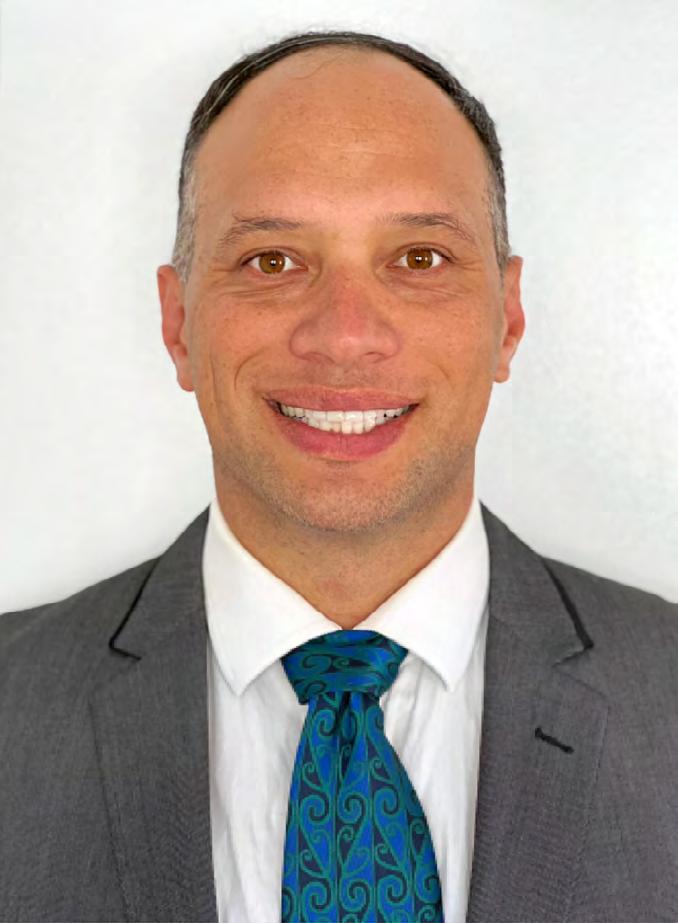
3 minute read
Change for Indigenous health
Dr Ben Cribb leads the change by enticing more Indigenous doctors into surgical training
The Indigenous people of Australia and Aotearoa New Zealand suffer significant inequalities in health outcomes in all areas of medicine. At present, Indigenous surgeons make up less than one per cent of the membership of the Royal Australasian College of Surgeons (RACS). Increased Indigenous representation among surgeons will improve surgical outcomes for Indigenous people and improve cultural safety and diversity within the profession. The RACS Indigenous Health Committee (IHC) was formed in 2008 to represent Indigenous College members and oversee the implementation of strategic commitments in Aboriginal, Torres Strait Islander and Māori health. Dr Ben Cribb, a general surgeon from Aotearoa New Zealand, has been involved with IHC and the Māori Health Advisory Committee since 2016. In 2022, he’s grateful for the opportunity to step up as IHC Chair. He says it’s a privilege to meaningfully contribute to change for the health of Indigenous Australians and Aotearoa New Zealanders.
Advertisement
Dr Cribb is currently based at Tauranga Hospital in the North Island. His iwi (people) is Ngātia Maniapoto and Ngāti Tamaterā. He was attracted to general surgery because of its technical aspects and the ability to see critically unwell patients recover after surgery. “I felt general surgery was where I could make the most significant impact and it matched my personality. “My goal, as IHC Chair, is to ensure that aspiring Indigenous doctors who want to be surgeons know that they are really needed in our specialty and that RACS wants them to be Trainees and surgeons,” says Dr Cribb. “I want to help our College evolve so that Indigenous surgeons have support networks and pathways to get into training and can successfully navigate and complete their training. Our Indigenous Trainees need a training program and workplaces that are culturally safe environments.” Currently, there’s no reliable data on the number of Indigenous RACS members, but Dr Cribb says it’s well under one per cent. He points out that the Medical Council of New Zealand collects ethnicity data together with medical registration, and he hopes that RACS will start to do the same, as the statistics are useful in bringing about change. Dr Cribb says the barriers for Indigenous Australian and Maori Aotearoa New Zealander surgeons are many and common between the two countries. He admits there’s no easy solution but thinks that multi-faceted interventions on multiple levels—guided by Indigenous Fellows who lead by example—can address the imbalance over time.
As IHC Chair, Dr Cribb says his biggest priority is increasing the number of Indigenous surgical Trainees. He plans to ensure that junior Indigenous doctors know there’s a real need for them in the surgical profession. His other priority is to continue improving the cultural safety and competency of all RACS Fellows. IHC has been engaging with training boards to incorporate cultural safety and competency into surgical education and the Trainee selection processes. “As a College, we must work towards increasing the number of Indigenous surgeons to better serve our Indigenous people and achieve equity in surgical outcomes.”
Dr Cribb also strongly advocates for equitable access to elective surgery. He’s particularly concerned that, with disruptions caused by COVID-19, inequities are exacerbated, and vulnerable Indigenous people will not get the surgical care they need. Dr Cribb looks forward to leading the drive for change by enticing more Indigenous doctors into the surgical training program and ensuring they have the support networks they need to succeed. “As a College, we must work towards increasing the number of Indigenous surgeons to better serve our Indigenous people and achieve equity in surgical outcomes.”










